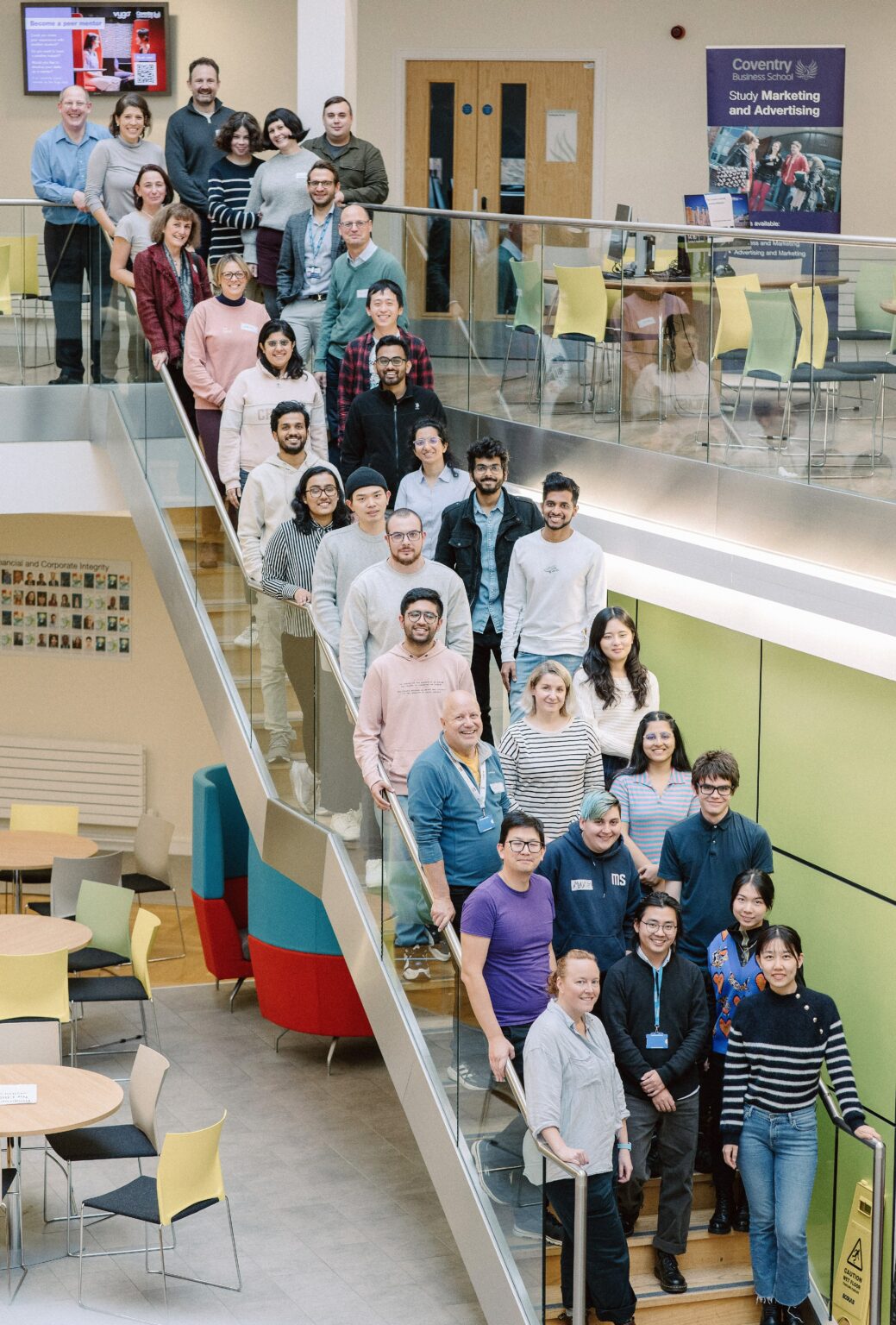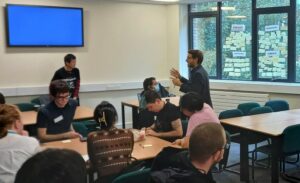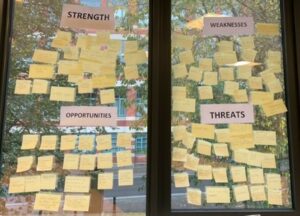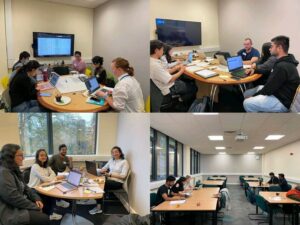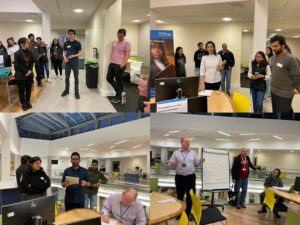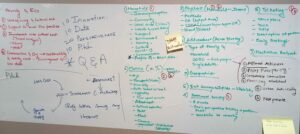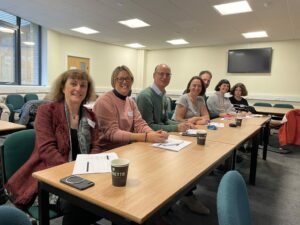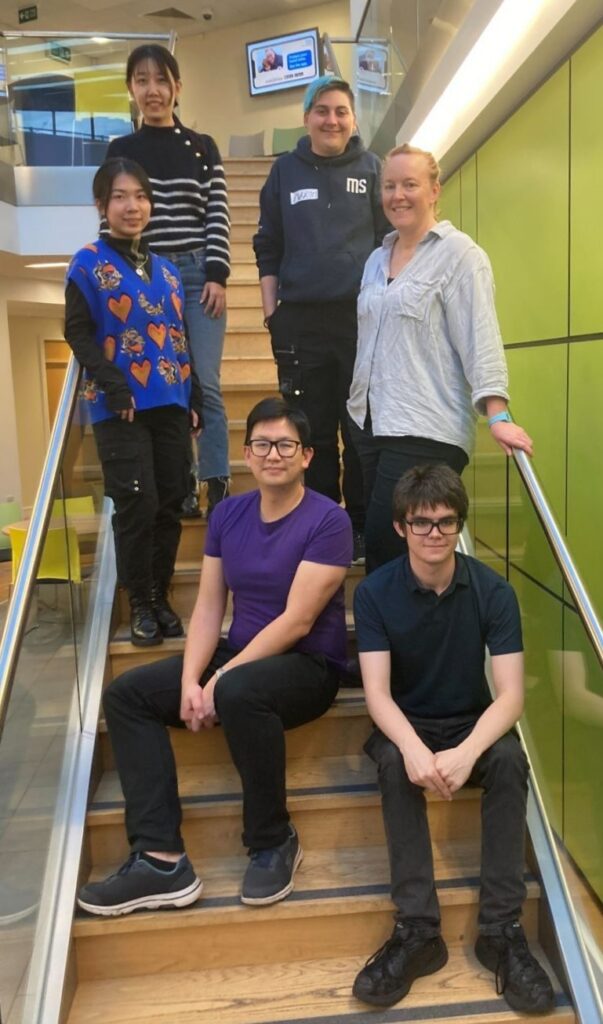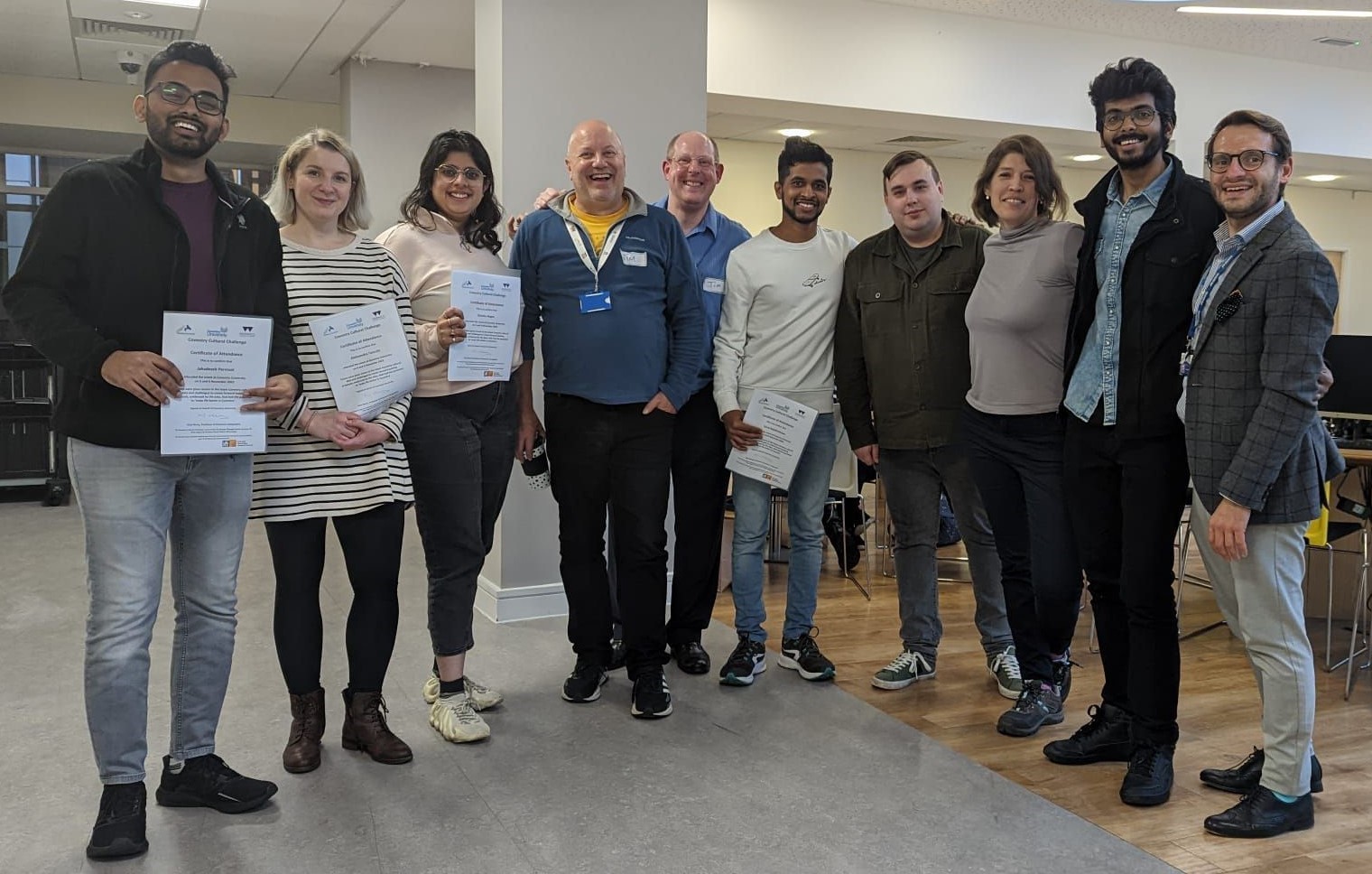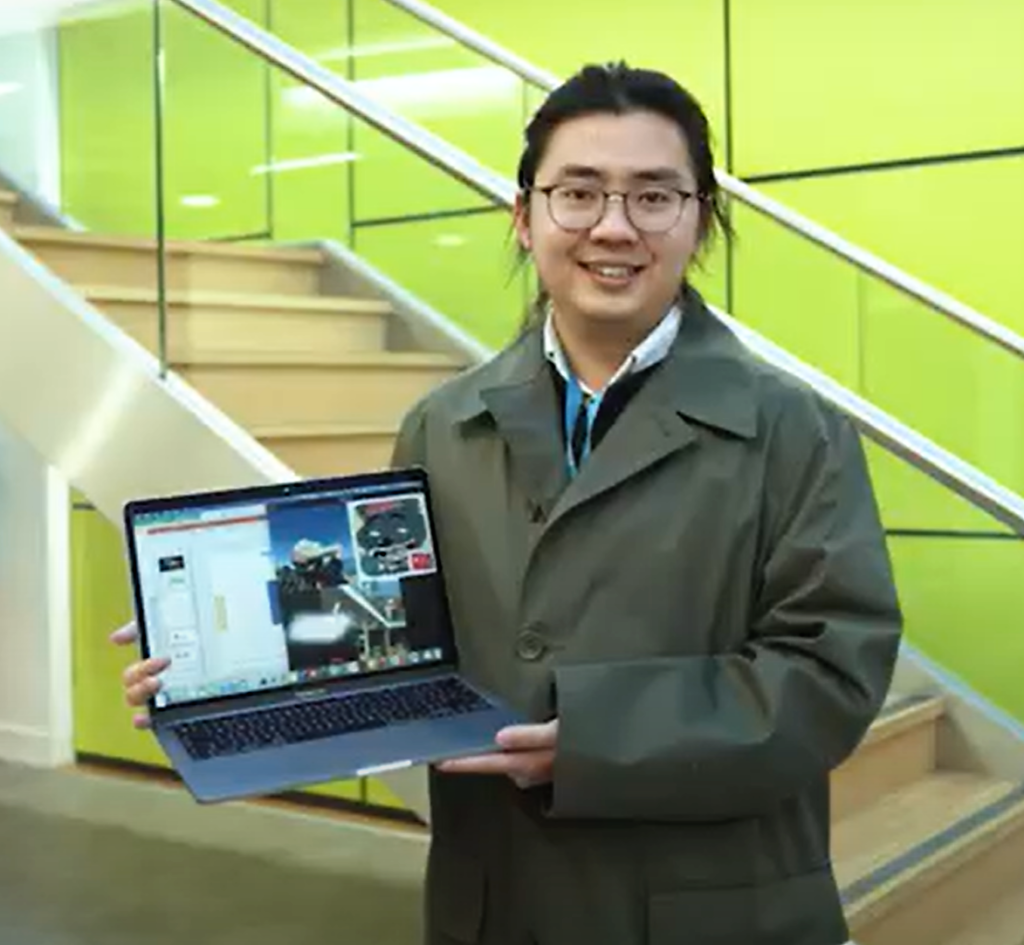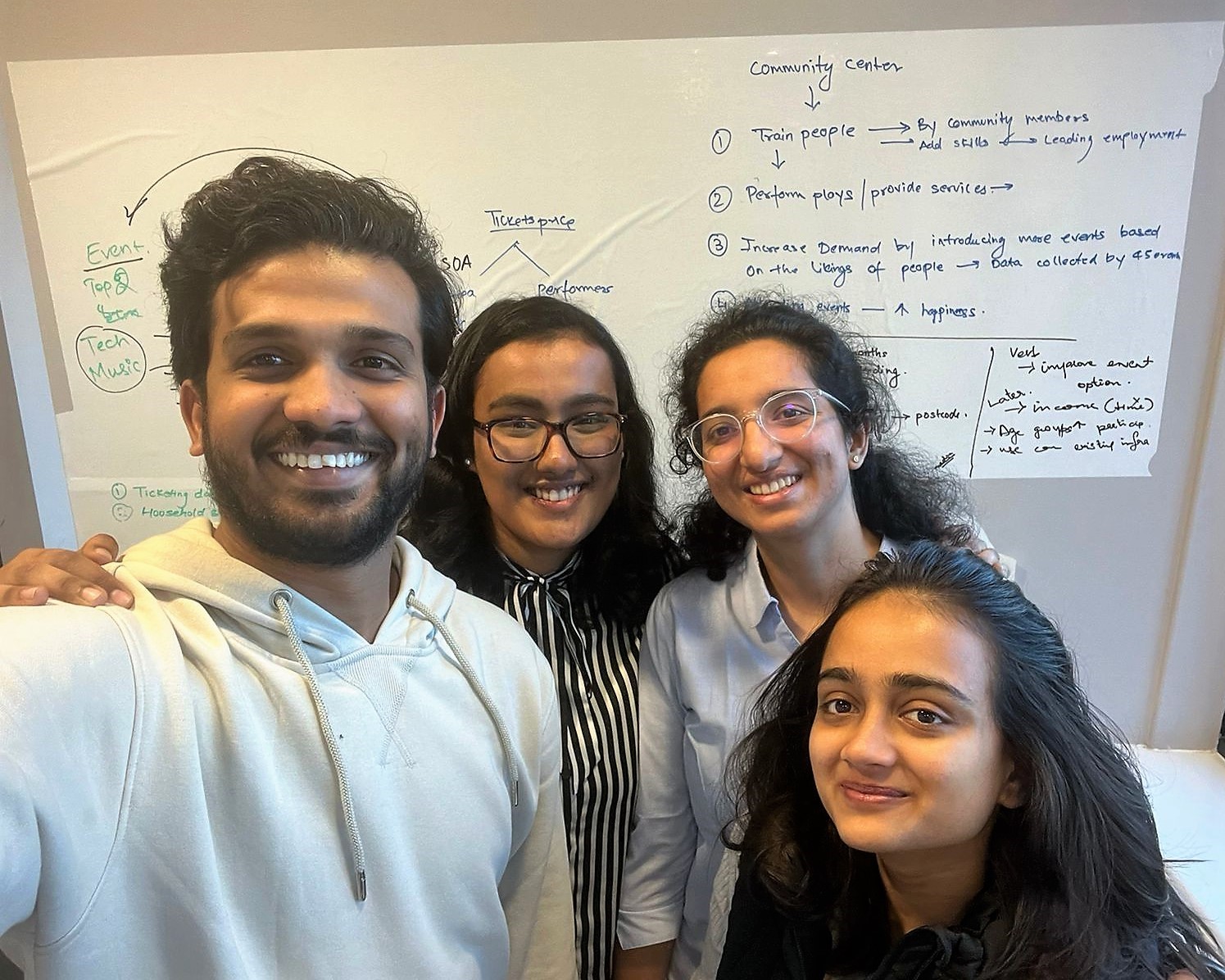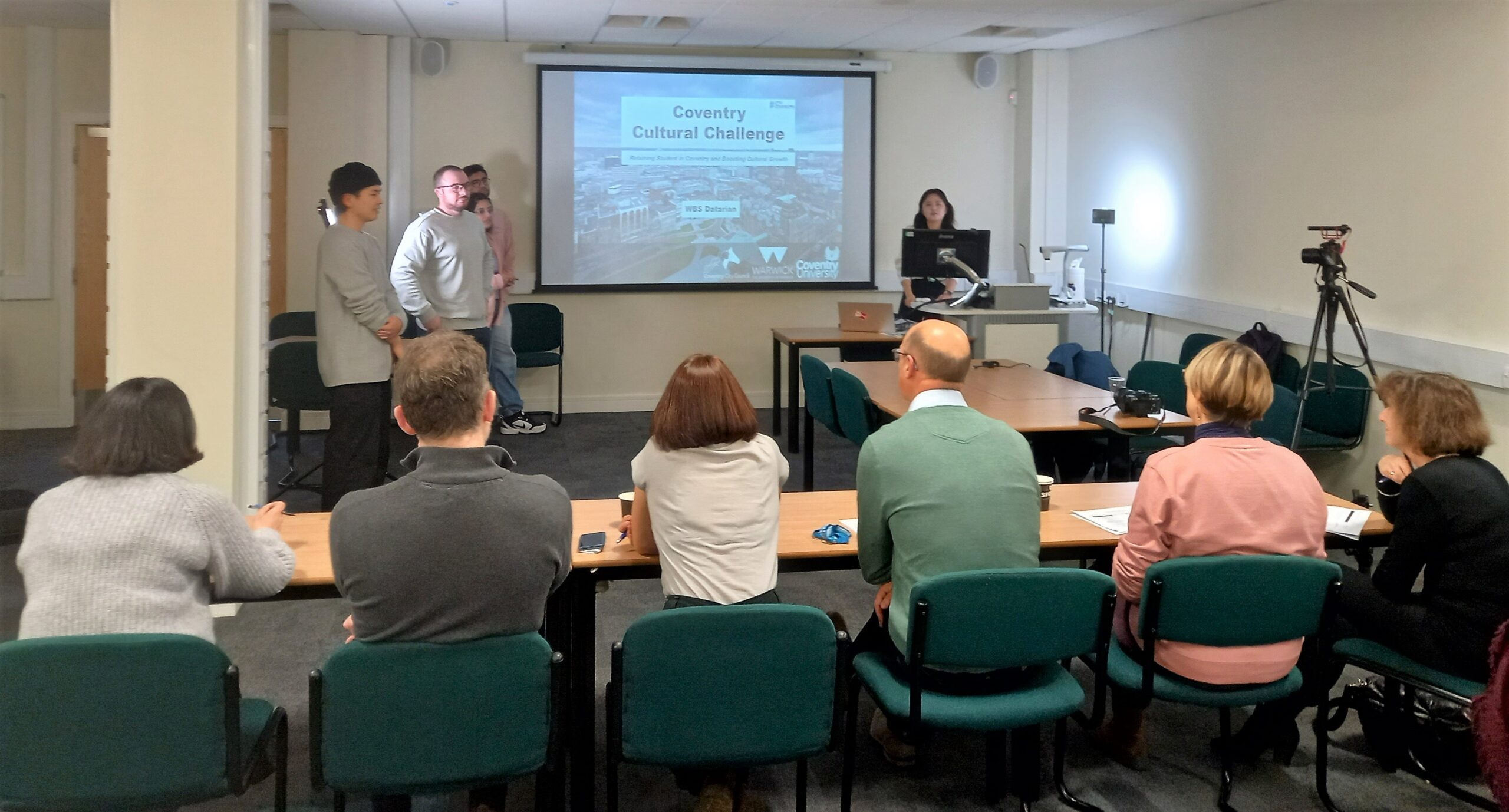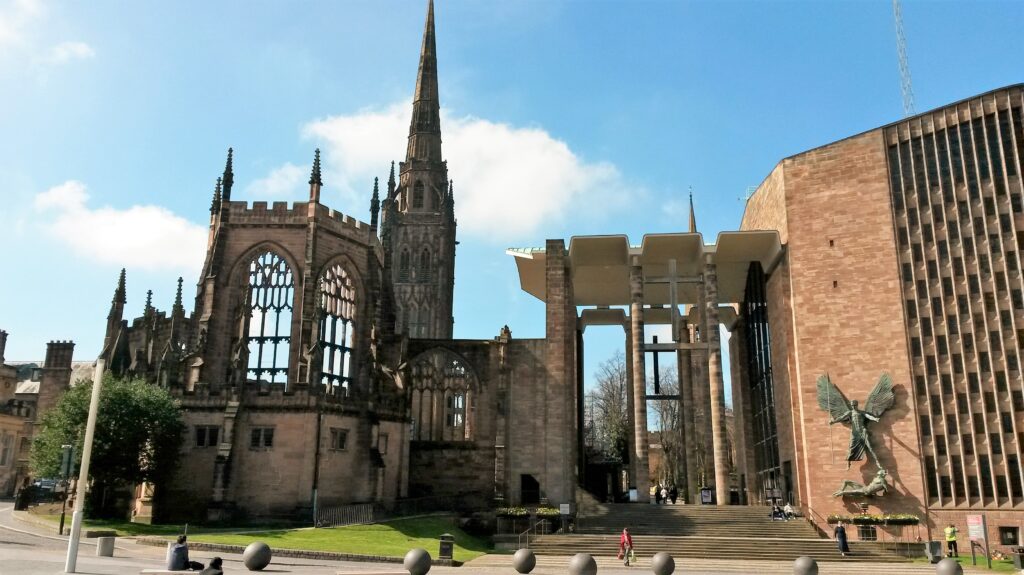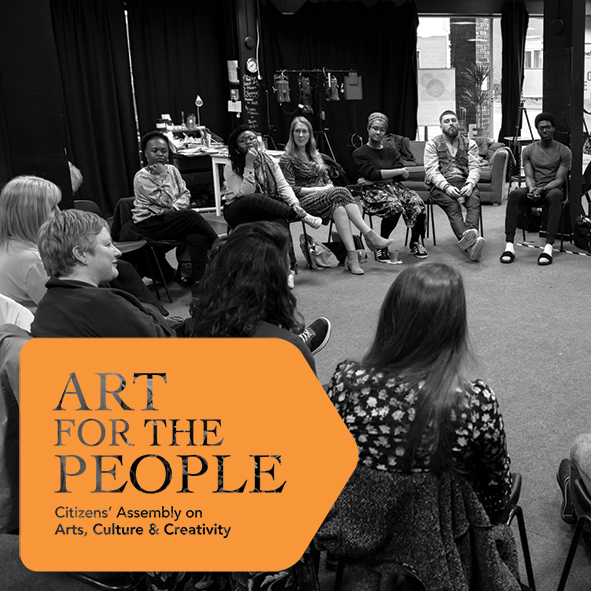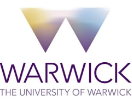Coventry Cultural Challenge
Coventry Cultural Challenge attendees (Photograph: Maria Polodeanu, Reel Master Production)
Make Life Better In Coventry
- Following its year as UK City of Culture, Coventry became a rich place for cultural data.
- How could these data be used to define concepts and ideas that could ‘make life better in Coventry’?
- Teams were invited to share their knowledge and creativity, and further develop their skills.
Objective
The Coventry Cultural Challenge provided a rare opportunity, as interdisciplinary teams were given unprecedented access to local big data, including from Coventry’s year as the UK City of Culture 2021 (UK CoC 2021).
During the weekend of 5 and 6 November 2022, at Coventry University’s Jaguar Centre, teams were asked to develop creative and innovative ideas/proposals that had the potential to ‘make life better in Coventry’.
The Challenge sought ideas/proposals that:
- were forward-looking
- were underpinned/evidenced by the data
- had thematic links to culture
- had the potential to ‘make life better in Coventry’.
Links to pages outlining the ideas and proposals of each team, most with video, are available below.
A Coventry Cultural Challenge guide provided further information relating to the event.
Participants
The Challenge brought people together who would not ordinarily meet, to share knowledge and spark new ideas.
Applications were welcomed from both teams and individuals from different backgrounds including (but not limited to):
- those working within the cultural sector – people leading, working or volunteering within the cultural sector
- those familiar with data – analysts, data scientists, academics, students or people with industry experience
- coders – people with ICT and coding expertise including academics, students or people with industry experience.
Individuals who joined alone were matched with others to form multi-disciplinary teams.
Teams and Presentations
Five teams took part in the Coventry Cultural Challenge; each developed and presented an idea to ‘make life better in Coventry’. Pages have been created for each team that include details of their proposals:
- Data Slackers: Share a Plate, Share a Story
- Discover Y: Bringing Communities Together: Culture as a Service
- Elden Kings: Does Economic Status Have an Impact on Belonging?
- Spaams: Increasing Participation in Coventry Cultural Events/Activities
- WBS Datarian: Retaining Students in Coventry and Boosting Cultural Growth
Data
Datasets made available to participants included:
- Coventry Household Survey 2018, 2021 and 2022 – including cultural participation variables
- Exit surveys from UK CoC 2021 events
- Ticketing data from UK CoC 2021 events
- UK City of Culture Sentiment Survey 2022
- CACI Ltd‘s ACORN and Paycheck data (household income at postcode level)
These were primary data that were both real and granular and enabled reflection on UK CoC 2021 and other aspects of Coventry life.
Jury Members
A panel of independent jury members evaluated the final Challenge presentations from each team to select those with the best ideas.
- Professor Nick Henry, Coventry University lead within the UK CoC 2021 monitoring and evaluation team.
- Professor Maureen Meadows, Coventry University, brought expertise in organisational big data.
- Valerie de Souza, Consultant in Public Health, represented Coventry City Council.
- Sarah Windrum, Chair of the Coventry & Warwickshire Local Enterprise Partnership and a digital/creative economy entrepreneur.
- Clare Mitchell, Local Cultural Education Partnerships, Arts Connect and Coventry Creative Freelancer
- James Debenham, Principal Consultant at CACI Ltd.
Images from the Coventry Cultural Challenge (Photographs: Si Chun Lam and Tim Hammerton)
The SWOT analysis helped teams to think about their ideas in relation to Coventry.
Acknowledgements
The Coventry Cultural Challenge was organised by Tim Hammerton, Alessandro Merendino and Nick Henry (Centre for Creative Economies) at Coventry University and Si Chun Lam, Tim Healey and Viviana Sagredo at Coventry City Council’s Insights Team, with support from Mark Scott at Warwick Business School.
It was part of the AHRC funded Place-Based Knowledge Exchange project, organised by members of the UK CoC 2021 monitoring and evaluation team.


